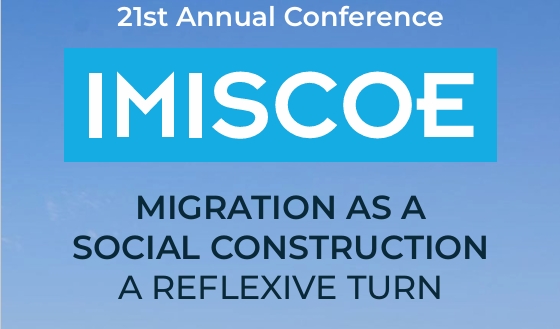MEETING
The ethics of researching irregular migration
This workshop focuses on the ethical issues, challenges, and dilemmas that arise in research on irregular migration in Europe. Although their conditions vary across individuals, sectors, and countries, migrants in an irregular situation can – and often do – experience a range of vulnerabilities. They typically have limited legal rights in host countries and are sometimes denied access to fundamental protections. This in turn has frequently led research on the subject to describe irregular migrants’ as ‘victims’, highlighting deprivation of rights, exploitative conditions, and the violence irregular migrants experience. Yet irregular migrants are not only passive victims of rigid laws and repressive policies, they also have agency and can therefore also be considered as actors in the governance of irregular migration (if relatively weak actors), capable of actively shaping their conditions. In this perspective, migrants’ mobilities, engagement in the informal economic activities and their social and living arrangements can be read not merely as coping strategies, but as acts of resistance and claims-making. Political actors tend to view migrants’ agency in less positive terms and rather see it as something dangerous that needs to be countered, a perception that often underpins repressive policies against irregular migrants. Yet, irregular migrants are not only expose to negative policies, attitudes and actions, they also receive sympathy and acts of solidarity, while themselves engaging in solidary practices.
For researchers, it is hard to escape the discursive and political dynamics surrounding irregular migration. As a consequence, ethical questions in researching irregular migration are, arguably, more profound than in some other areas of social scientific research. The proposed IMISCOE workshop reflects critically on the ethics of researching irregular migration from different perspectives. Drawing on ethical reflections undertaken and concrete practical challenges experienced in the context of several Horizon Europe research projects examining different aspects of the presence of irregular migrants in Europe and policy responses to it. Participants may reflect on some of the central ethical issues identified in literature and policy responses to it (see for a list of projects https://irregularmigration.eu/horizon-projects/) the workshop identifies and analyses specific ethical challenges in research on irregular migration in all stages of research projects – from formulation, implementation and dissemination. Questions addressed include how to deal with policy categories shaping the very understanding of the research field, how to address uncertainty related to the epistemic structure of the field, how to confront the consequences of uncovering hidden practices, questions of bias, neutrality and partisanship, as well as positionality, asymmetries between researchers and the researched, to name but a few.
The workshop serves to research and test initial concepts for a special issue project on the ethics of researching irregular migration.
Organizers
Albert Kraler
University for Continuing Education – Danube University Krems
Martin Ruhs
European University Institute
Speakers
